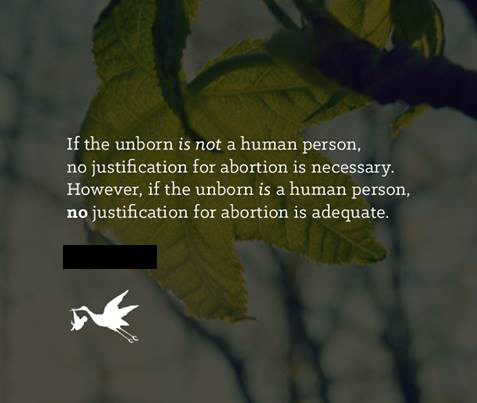I’ve seen a couple people share this picture. I’ve removed the original speaker’s name, but he’s a relatively well-known speaker in Evangelical circles and is does a lot of work in Christian apologetics. I also have no particular issue with him in general, so I didn’t want to make it about him at all.
Think about what is stated here:
If the unborn is not a human person, no justification for abortion is necessary.
However, if the unborn is a human person, no justification for abortion is adequate.
You may think it unfair to criticise such a short piece of text. Surely I’m taking things out of context. I disagree. Someone put this picture together to share, all by itself. Presumably the intention in sharing it is that someone will see it and see that it really spells out a simple truth in a clear and concise way. I don’t believe that even couched in a much longer talk, the meaning of what is claimed here could properly be construed in anything other than a direct, literal way.
When I saw this picture being shared, I asked pro-lifers (those of us who believe that abortion is, prima facie, morally indefensible) not to share it. I asked them to be more careful and critical than that.









